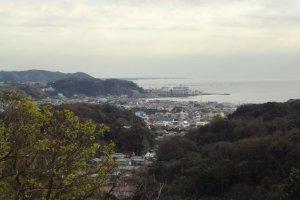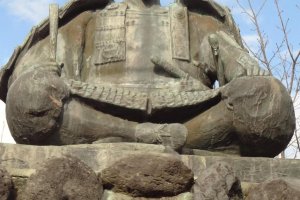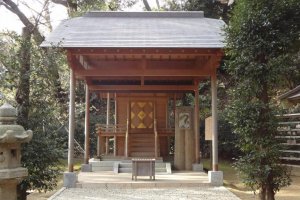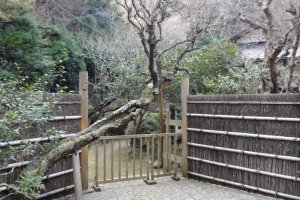There are several hiking courses in Kamakura, a city surrounded by mountains and the sea. If you are the type of person who doesn’t like to do the same thing as other people do, or if you have visited Kamakura before and you think you’d like to try something new, I have several options to recommend. This is a hiking course where you can enjoy both nature and seeing historical places.
The Daibutsu-Kuzuhara-ga-oka Course (大仏-葛原が岡) has fine scenery and is a relatively easy hike. And you can visit some nice temples along the way, including Daibutsu, Jochi-ji temple, and Tokei-ji temple. So this course includes the essence of Kamakura and is wonderful for people who would like to see Kamakura from the back end.
This trail takes about one hour and half. Genji-yama Park (源氏山公園) is half way through the hike, and there you can take a break. Compared to the Tenen Hiking Course, this one is rather easy because the course is well maintained and its steep slopes are equipped with steps. But I don’t mean you can walk it with sandals or high heels!
Starting Point
Take a bus from the No.1 Terminal in front of the East exit at Kamakura station. Your stop is Daibutsu-mae (大仏前). It will take around ten minutes if traffic is not heavy. After you get off the bus, keep walking forward towards the road-tunnel in front of you, and on the right side of the tunnel (you have to cross over to the other side of the road), you will find steep steps. This is your starting point! But before you begin, you might want to visit Daibutsu. The entrance to Daibutsu is just in front of a souvenir shop, Sankai-do. The famous large, beautiful statue is definitely worth visiting.
Things to Keep a Lookout For
The hike has some highlights.
- First, you will see an old building next to the steps before the hike begins. It used to be a gymnasium of Kamakura city, where Kendo and Aikido were practiced. It was built in about 1935 and is currently unused, apparently due to the danger of earthquakes.
- This course travels ridges with views of the shore. You can see some inlets and the shore sometimes between groves of trees. These stunning views will make you forget anything you are worried about! Take a deep breath and enjoy the fresh air and wonderful scenery.
- You won’t meet many people on the way, but you will often hear things moving, singing, and crying. You’ll also see a lot of Taiwanese squirrels, black kites (small hawks), and cats. It is said that many years ago some squirrels that were kept by a resident near here escaped and spread rapidly.
- After walking for about 30 minutes, you will come to Genji-yama Park. There are some picnic tables and benches scattered around the park. And there are also restrooms and drink vending machines inside. If you go down a little bit in the direction of Kewai-zaka, you will see a statue of Minamoto-no Yoritomo, the samurai founder of the Kamakura Shogunate (1185 A.D). How about sipping coffee next to Yoritomo? He might tell you about the spirit of Kamakura samurai!
- After going back to the main path, continue along straight to Kuzuhara-ga-oka shrine. Near the gate, you’ll see two big stones tied to each other with fancy red string. These are the gods of matchmaking. If you throw coins into an offertory box and then pray to the gods seriously your desires will be answered!
- Another fun thing along the course are the flowers as they bloom in season. I saw a beautiful hedge of camellia and daffodils in full bloom.
- Near the end of the course, old style Japanese houses are scattered about. With nicely maintained bamboo fences, thatched roofs covered with moss and lichen, these are quite Japanese and photogenic.
Toward the goal
You are almost at the end of the course. Just go down the slope towards Jochi-ji Temple. Then, you will reach the main road. Turn left and walk straight for 7 minutes. Along the way, you can drop by Tokei-ji temple. This road will bring you to JR Kita-Kamakura Station in a few minutes.
Kamakura samurai traveled along the same route 650 years ago. And the road itself has not changed much. You can easily imagine the samurai days of old by walking this course.
An index of this series is here.

































